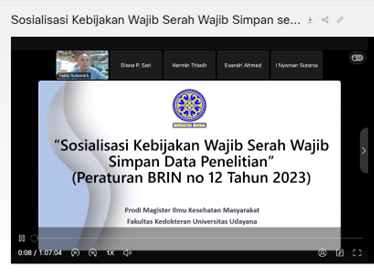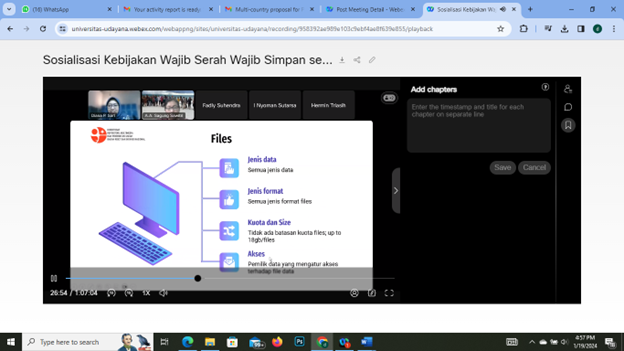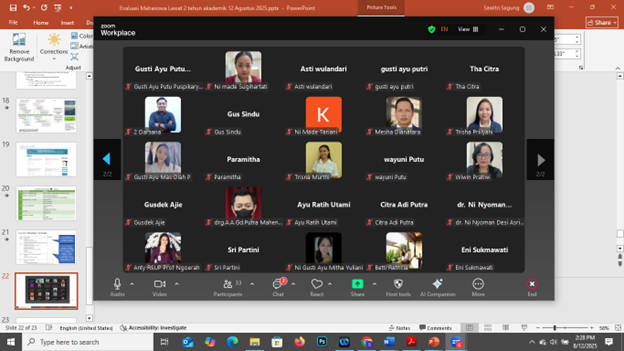Empowering Research Excellence: Prodi S2 IKM Advocates for National Data Repository Compliance
We are excited to share the recent initiative undertaken by the The Master's Program of Public Health (Prodi S2 IKM). In light of the indispensable nature of research activities within the university setting, our program has orchestrated a comprehensive awareness campaign regarding the recent policy outlined in BRIN Regulation No. 12 of 2023. This policy pertains to the storage of research data in the national repository.
Recognizing the paramount importance of disseminating this information, Prodi S2 IKM has organized an enlightening session targeting both faculty members and students. These sessions aim to shed light on the necessity of adhering to the specified guidelines for storing research data in the national repository, ensuring compliance with BRIN regulations.
Our program had the privilege of hosting a distinguished team from the National Scientific Repository (RIN) department at BRIN. The event, inaugurated by Fadli Suhendra representing the Director of Multimedia Repository and Scientific Publishing, featured Diana Permata Sari as the keynote speaker. The virtual event took place on January 19, 2024, and witnessed active participation from both faculty and students.
During the sessions, it was emphasized that researchers should consider storing their data in an officially recognized repository, ensuring data security and gaining national and international recognition. However, researchers maintain control over the data stored in RIN. Universities have the flexibility to request dedicated spaces, such as folders, to store research data. These folders can be further categorized into subfolders based on faculties or specific study programs.
Researchers retain control over data access, deciding whether it should be open, semi-open, or closed, depending on their preferences. This initiative not only ensures the security and accessibility of research data but also allows universities to leverage data stored by researchers from various institutions. The controlled access system enables the utilization of data relevant to specific topics, fostering a collaborative and dynamic research environment.
It is noteworthy that many institutions have already embraced the RIN system for data storage. BRIN expresses its hope that Universitas Udayana will join the ranks of institutions benefiting from the RIN system, contributing to the growth and advancement of research practices.
We look forward to seeing the positive impact of this initiative on our research community at Universitas Udayana.






MEDICAL FACULTY